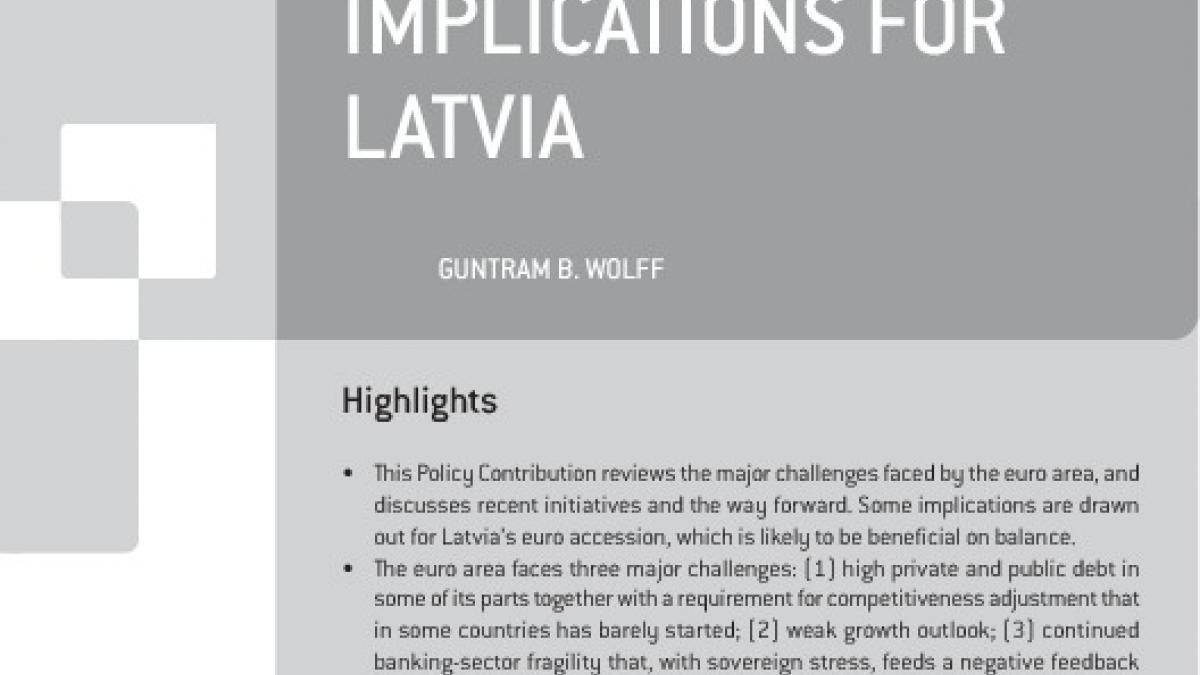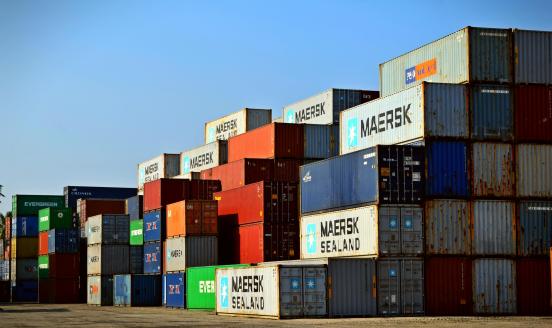Policy brief
Challenges for the euro area and implications for Latvia
This Policy Contribution reproduces evidence given by Guntram B. Wolff to the Latvian parliament’s European affairs committee, 22 February 2012. It re

This Policy Contribution reviews the major challenges faced by the euro area, and discusses recent initiatives and the way forward. Some implications are drawn out for Latvia’s euro accession, which is likely to be beneficial on balance.
- The euro area faces three major challenges: (1) high private and public debt in some of its parts together with a requirement for competitiveness adjustment that in some countries has barely started; (2) weak growth outlook; (3) continued banking-sector fragility that, with sovereign stress, feeds a negative feedback loop. The euro area has agreed many significant measures to overcome these problems, including the European Stability Mechanism and the fiscal compact. The 21 February agreement on Greece removes a major source of financial instability even though it is likely that further debt reductions will be needed. Significant concerns remain, the most important of which are the slow real economic adjustment and the largely unaddressed banking-sovereign fragility. The fiscal compact raises the issue of appropriate fiscal stabilisation tools at the euro-area level.
- Countries that will soon join the euro should actively shape the debate about the further development of the overall set-up. For Latvia, joining the euro makes sense because Latvia has kept its exchange rate fixed and has undergone internal adjustment. In its euro-area accession negotiations, Latvia should ensure that it does not participate in any of the currently ongoing financial assistance programmes.
This Policy Contribution reproduces evidence given by Guntram B. Wolff to the Latvian parliament’s European affairs committee, 22 February 2012.



